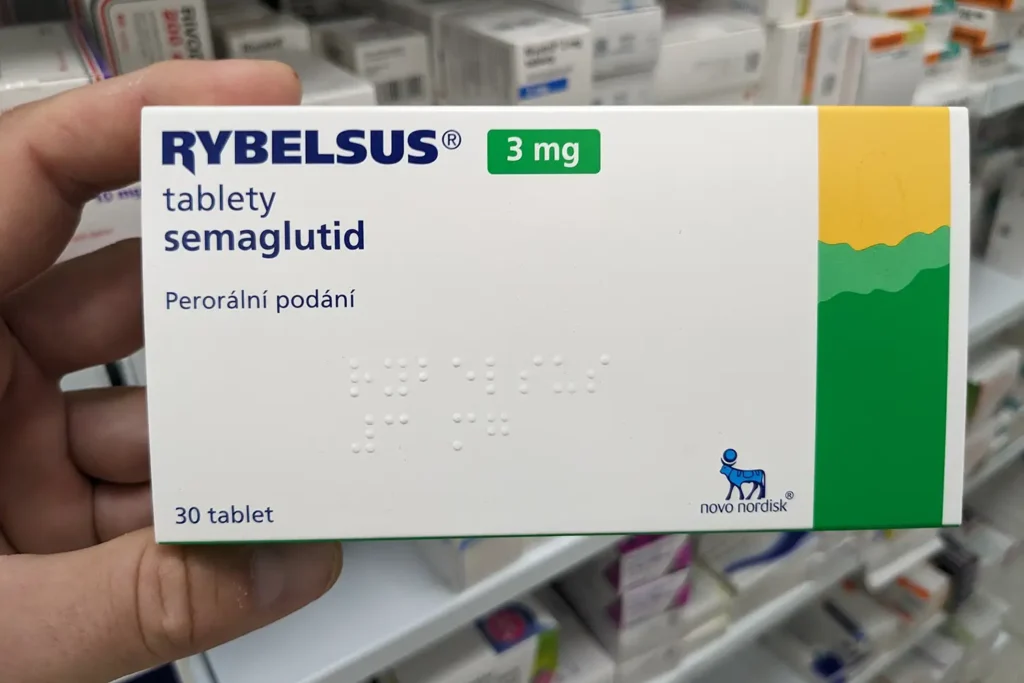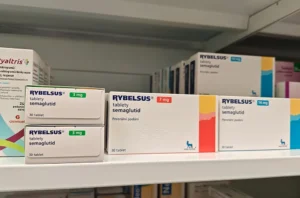
Comparing GLP‑1 Weight Loss Pills: Which One Suits Your Needs?
In recent years, GLP-1 medications have become one of the most talked-about breakthroughs in weight management. Originally developed to help people with type 2 diabetes regulate blood sugar, these medications have also shown impressive results in reducing appetite and supporting meaningful weight loss. Until recently, most GLP-1 therapies were only available as injections. Now, a new wave of GLP-1 weight loss pills is giving patients more flexibility and choice. In this guide, we’ll explore how GLP-1 medications work, compare leading oral options such as Rybelsus (oral semaglutide) and the upcoming tirzepatide pills, review effectiveness and side effects, and help you decide which approach best fits your lifestyle and goals.
What Are GLP-1 Medications and How Do They Work?

At their core, GLP-1 medications mimic a natural hormone in your body called glucagon-like peptide-1 (GLP-1). This hormone is released after meals and signals the body to regulate appetite, slow digestion, and improve blood sugar balance. By reinforcing these natural processes, GLP-1 medications make it easier to eat less, feel full sooner, and lose weight over time.
GLP-1’s Role in Metabolism and Appetite
When GLP-1 activates in your system, it works on several levels. It slows the emptying of food from your stomach, so you stay satisfied longer. It also increases the release of insulin while reducing the liver’s production of excess sugar, helping stabilize blood sugar levels. The combined effect reduces appetite and cravings: two of the biggest hurdles in sustainable weight loss.
From Injections to Pills: A New Era of Convenience
For years, patients relied on weekly injections like Ozempic (semaglutide) and, more recently, Zepbound (tirzepatide). Now, oral semaglutide (Rybelsus) has made daily pill-based GLP-1 therapy possible, opening doors for those who prefer not to use needles. Even more exciting, new oral formulations of tirzepatide and other GLP-1/GIP combo drugs are in late-stage trials, promising even more convenient and flexible treatment options in the future.
Overview of Available GLP-1 Pills
While several GLP-1 weight loss pills are in development, only one is FDA-approved today. Here’s a closer look at the current and upcoming options.
Rybelsus (Oral Semaglutide)

Rybelsus is currently the only FDA-approved oral GLP-1 medication. It comes in doses of 3 mg, 7 mg, and 14 mg tablets. Initially approved to manage type 2 diabetes, Rybelsus has since gained attention for its weight loss benefits, especially among people who want to avoid injections. While weight reduction results may not be as dramatic as injectable Ozempic (semaglutide), many patients find it a more sustainable choice.
Oral Tirzepatide (In Development)
Tirzepatide, already available as the injectable Zepbound for weight loss, is also being developed in oral form. Data from SURPASS and SURMOUNT clinical trials show strong early results, with significant reductions in body weight comparable to injectables. FDA approval for oral tirzepatide is still pending, but experts expect it could become available in the next few years, offering patients another powerful pill-based option.
Other Emerging Oral GLP-1 Therapies
Beyond semaglutide and tirzepatide, pharmaceutical companies are testing new oral therapies such as ecnoglutide and orforglipron. Some of these are GLP-1 agonists, while others combine GLP-1 with additional pathways like GIP for enhanced effect. These drugs are not yet available, but they highlight the rapid innovation happening in weight loss medications.
Effectiveness: How Much Weight Can You Lose?
The effectiveness of GLP-1 medications is one of the main reasons they’ve become so popular. Still, results vary depending on the specific drug and whether it’s taken orally or by injection.
Rybelsus Weight Loss Data
Clinical trials show that patients taking Rybelsus can lose an average of 5–8% of their body weight over 26–52 weeks. While this is slightly less than the double-digit percentages often seen with injectable semaglutide (Ozempic/Wegovy), many patients still find these results meaningful, especially when paired with healthy lifestyle changes.
Early Tirzepatide Pill Trial Results
Oral tirzepatide is already showing promise in trials, with some patients achieving 10–15% weight loss in under a year. If these results hold true once the medication reaches the market, it could set a new benchmark for oral weight loss treatments.
Injectable vs. Oral GLP-1 Medications
Injectable medications generally produce stronger, more consistent weight loss outcomes due to better absorption. However, pills are far more convenient for many people, particularly those who are uncomfortable with weekly injections. Ultimately, the choice often comes down to lifestyle fit, comfort, and accessibility.
Side Effects and Safety Considerations
Like any prescription medication, GLP-1 weight loss pills come with side effects and important safety considerations.
Common Side Effects
The most frequently reported side effects are nausea, diarrhea, constipation, and appetite changes. These side effects are similar to those of injectable GLP-1s and are typically most noticeable during the first few weeks of treatment. Many patients find that these symptoms improve as their body adjusts.
Serious Warnings and Contraindications
GLP-1 medications carry a boxed warning about thyroid C-cell tumors observed in animal studies. While it’s unclear if this applies to humans, it is a safety consideration. Other rare but serious risks include pancreatitis, gallbladder issues, and severe gastrointestinal complications. For these reasons, ongoing medical supervision is essential.
Who Should Not Take GLP-1 Pills
GLP-1 medications are not recommended for individuals with a personal or family history of medullary thyroid carcinoma or multiple endocrine neoplasia syndrome type 2 (MEN 2). Patients with severe gastrointestinal disease or certain gallbladder conditions may also need alternative treatments. Always review your health history with a qualified provider before starting GLP-1 therapy.
Lifestyle Fit: Daily Routine vs. Weekly Injection
Even the most effective weight loss medications won’t work if they don’t fit into your daily life. That’s why it’s important to weigh the pros and cons of daily pills versus weekly injections.
Oral Pills: Pros and Cons
Rybelsus must be taken first thing in the morning on an empty stomach, with just a small sip of water, and you must wait at least 30 minutes before eating or drinking anything else. This daily routine can be challenging for some, but it provides a needle-free option that feels natural and private. For many patients, the convenience outweighs the extra effort.
Injection Therapy: Pros and Cons
Injectables such as Ozempic, Wegovy, or Zepbound are taken once weekly, requiring less daily planning. However, they do involve self-injection or assistance from a healthcare provider, which may feel intimidating at first. The payoff is typically stronger weight loss outcomes and fewer disruptions to your daily routine.
Cost, Insurance, and Access
Affordability is one of the biggest barriers to weight loss medications. Here’s what to expect:
Rybelsus Pricing and Insurance
Without insurance, Rybelsus costs around $1,000 per month. Many private insurers and some Medicare plans cover it for type 2 diabetes, but coverage for weight loss may vary. Patients should check with their provider and insurance plan for specifics.
Tirzepatide Pill Availability and Cost Projections
Since oral tirzepatide is still in development, exact pricing isn’t available. However, given that its injectable counterpart (Zepbound) is similarly priced to Ozempic, experts expect the pill version to fall within the same range once approved.
Savings Programs and Coupons
Both Novo Nordisk (maker of Rybelsus) and Eli Lilly (maker of tirzepatide) offer savings cards and patient assistance programs. For eligible patients, these programs can significantly reduce monthly costs, sometimes to as little as $10–$50. Exploring these options can make treatment far more affordable.
How to Choose the Right GLP-1 Pill for You
Choosing the right GLP-1 weight loss pill depends on your health history, weight loss goals, and lifestyle.
Personal Goals and Health History
Some patients may benefit from the proven safety and availability of Rybelsus today, while others may want to wait for tirzepatide pills, which may deliver greater weight loss. The right choice also depends on whether you have diabetes, gastrointestinal conditions, or other health considerations. Talk to a medical provider about oral versus injectable weight loss therapies to ensure you select a treatment aligned with your biology and personal goals.
Consultation at Rise Men’s Health
At Rise Men’s Health, we believe weight loss should never be one-size-fits-all. Our providers evaluate your full medical history, goals, and preferences to create a personalized plan, whether that involves oral semaglutide, an injectable option, or another treatment. Discover which GLP-1 option is right for your lifestyle.
Book your consultation at Rise Men’s Health today. (CTA)
Frequently Asked Questions (FAQs)
What are the best GLP-1 pills for weight loss?
Currently, Rybelsus is the only FDA-approved GLP-1 pill. Other options like oral tirzepatide and orforglipron are in development and may become available soon.
Is Rybelsus as effective as Ozempic?
Rybelsus (oral semaglutide) typically produces slightly less weight loss than injectable Ozempic. However, many patients choose it for the convenience of a daily pill.
Are GLP-1 weight loss pills safe?
Yes, for most people under medical supervision. Side effects are usually manageable, but patients with a history of thyroid cancer or pancreatitis should avoid them.
What is the difference between Rybelsus and tirzepatide?
Rybelsus contains oral semaglutide, while tirzepatide targets both GLP-1 and GIP receptors. Early data suggest tirzepatide may provide stronger weight loss once it becomes available.
Can you lose weight with GLP-1 pills alone?
Yes, but combining the medication with a balanced diet and active lifestyle produces the best and most sustainable results.

Jessica is from the Dallas-Fort Worth area. She graduated from Texas Tech University with a Bachelor’s in Psychology and a minor in Nutritional Sciences. She then went on to obtain her Master of Medical Science from Lincoln Memorial University-DCOM. For the past 8 years, she has specialized in men’s health and primary care and is passionate about improving her patient’s quality of life. In her free time, she enjoys spending time with her husband and daughter (and pups!), working out, target practice, hiking, traveling, and DIY home improvement projects.
